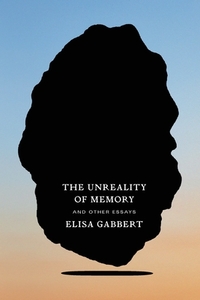You need to sign in or sign up before continuing.
Take a photo of a barcode or cover
kevin_macdonell's Reviews (81)
Stephen Marche doesn’t pull punches in this essay which addresses beginning writers, but which I would just as readily press on non-writers with funny notions about the writing life. Highly quotable and a joy to read, and despite its hard truths, oddly inspirational. Does Marche intend to inspire? Perhaps not, but being misunderstood is part of the writer’s lot.
Not that I prefer milque with my toast, but in at least once instance, I might have preferred he not punch so wildly. He takes a swing at Allen Ginsberg, which is perfectly fine. But Ginsberg is not just a hippie blabbermouth with no taste, he’s also a homosexual and a Jew. Does Marche really intend to include these attributes in his condemnation of the man? Probably the intent is for us to see Ginsberg through the eyes of Ezra Pound, whose meeting with Ginsberg is the final humiliation -- but this is far from clear. Being misunderstood can be the fault not of the reader, but an editor.
Not that I prefer milque with my toast, but in at least once instance, I might have preferred he not punch so wildly. He takes a swing at Allen Ginsberg, which is perfectly fine. But Ginsberg is not just a hippie blabbermouth with no taste, he’s also a homosexual and a Jew. Does Marche really intend to include these attributes in his condemnation of the man? Probably the intent is for us to see Ginsberg through the eyes of Ezra Pound, whose meeting with Ginsberg is the final humiliation -- but this is far from clear. Being misunderstood can be the fault not of the reader, but an editor.
I read “The Coming of Winter,” David Adams Richard’s first novel, about 20 years after its 1974 debut. I was maybe 24, only slightly older than DAR was when he wrote it. This was long ago and only traces of images remain, but I remember being captivated by the language. When I think of this book, rightly or wrongly, I think of James Agee’s “A Death in the Family.”
Sadly (for me), I didn’t find the same magic in some of the novels that followed. I read “Mercy Among the Children” when it came out in 2000. Again, memory fails, but I remember how he clearly had it in for certain people, academics for example. I couldn’t hear the music in his language over the sound of axes being ground.
I’m glad to have read this slim memoir, a collection of reflections threading through his books and the writers he’s known, for helping me better understand where his grievances come from.
He is a complex, difficult guy. And he’s a conservative, which is not an easy road these days, given the buffoon pretend conservatives one risks getting classed with. There would be little we agree on politically. But I respect those who raise a finger and say, hold up: What good might we be losing here as we toss out the old? As long as they do it with intelligence and compassion, neither of which he lacks. For him, the truly significant struggles over right and wrong occur not in society or its politics but in the soul of the individual — that idea appeals as well.
But the evils he tilts at seem obscure to me. I don’t recognize his victims and, although I have no special fondness for academics, I don’t recognize his villains, either. In this memoir, when he refers to a “woke mob,” or feminists “of a certain type,” I suspect he sees reality differently from how I see it.
The repeated implication in this memoir is that he’s paid the price for what he believes and what he writes. Whether he is misunderstood or understood all too well, I’m really not sure.
Sadly (for me), I didn’t find the same magic in some of the novels that followed. I read “Mercy Among the Children” when it came out in 2000. Again, memory fails, but I remember how he clearly had it in for certain people, academics for example. I couldn’t hear the music in his language over the sound of axes being ground.
I’m glad to have read this slim memoir, a collection of reflections threading through his books and the writers he’s known, for helping me better understand where his grievances come from.
He is a complex, difficult guy. And he’s a conservative, which is not an easy road these days, given the buffoon pretend conservatives one risks getting classed with. There would be little we agree on politically. But I respect those who raise a finger and say, hold up: What good might we be losing here as we toss out the old? As long as they do it with intelligence and compassion, neither of which he lacks. For him, the truly significant struggles over right and wrong occur not in society or its politics but in the soul of the individual — that idea appeals as well.
But the evils he tilts at seem obscure to me. I don’t recognize his victims and, although I have no special fondness for academics, I don’t recognize his villains, either. In this memoir, when he refers to a “woke mob,” or feminists “of a certain type,” I suspect he sees reality differently from how I see it.
The repeated implication in this memoir is that he’s paid the price for what he believes and what he writes. Whether he is misunderstood or understood all too well, I’m really not sure.




